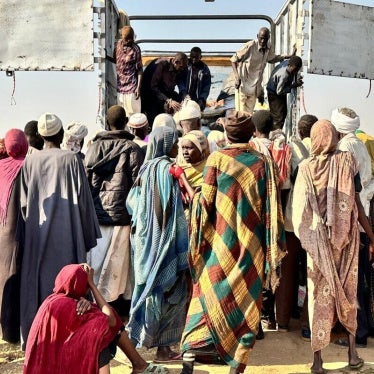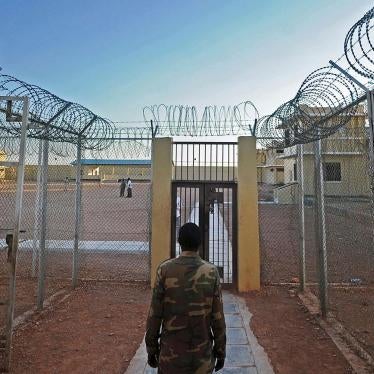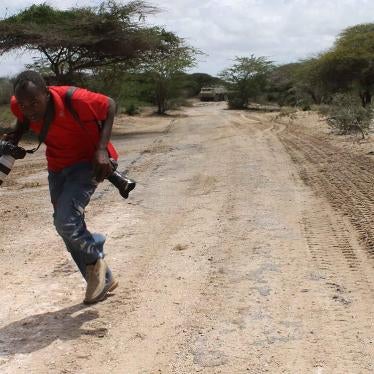Two days ago, in broad daylight, on a makeshift football field in Mogadishu, state security forces carried out the execution by firing squad of three men. Children were among the crowd who witnessed the executions, which had been handed down by Somalia’s military court.
Access to Somali military court proceedings is severely restricted so precise information is sketchy. In a statement, the chairman of the military court, Colonel Liban Ali Yarow, said the three were sentenced to death for killing and for murder. According to him, one was a soldier found guilty of killing a civilian, the other two defendants were a soldier and a member of the municipal police, found guilty of murdering two government soldiers.
A 2011 presidential decree granted the military courts extensive temporary powers– notably jurisdiction over all abuses committed in areas declared under a state of emergency, which included Mogadishu’s central market and camps for internally displaced people. Since then, we have raised concerns for the due process rights of defendants before military courts.
There have been some improvements since 2011, including an attempt to ensure basic legal counsel, and the re-establishment of a Supreme Court to hear appeals in late 2012. Yet, concerns remain over the right to be tried by an independent and competent tribunal, the right to prepare a defense, and especially the use of military courts to try civilians.
As this week’s executions illustrate, the military courts continue to exercise very broad jurisdiction over individuals and criminal offenses. The court has not only tried soldiers charged with military offenses but also soldiers, civilian police and al-Shabaab fighters accused of crimes against civilians. There is increasing recognition under international and regional standards that the jurisdiction of military courts should be limited to offenses of a strictly military nature committed by military personnel.
In addition, the military court continues to sentence defendants to death and carry out executions – four already in 2014. Human Rights Watch opposes the death penalty in all circumstances as an inherently cruel and irreversible punishment- an issue that is particularly relevant in Somalia before the military court, given the due process concerns.
President Hassan Sheikh himself has repeatedly recognized that the current justice system in Somalia leaves much to be desired. The president has the final sign-off on all executions. If he is truly committed to establishing a rights-respecting society, the president should immediately commute all death sentences and publicly commit to imposing a moratorium until the parliament enacts a law banning the death penalty permanently.
In a country where killing and violence is omnipresent, it is vital for the government to step away from a widespread belief where death is seen as the answer. Somalia’s playing fields should be for children and football, not for firing squads.









